Intergalacticnerd - Space N Shit
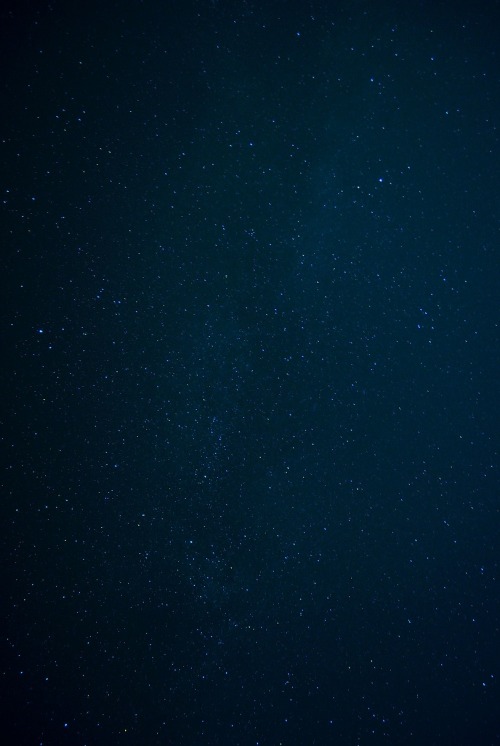
More Posts from Intergalacticnerd and Others

Excitement over tiny tiny ripples.
And so, gravitational wave astronomy is born. We live in exciting times!
LIGO Gravitational Wave Chirp - Chirp pattern of gravitational waves detected by LIGO on September 14, 2015. Credit: LIGO http://www.ligo.org/










A recap of January in pictures! Winters the best time for astrophotography which is why I’ve had plenty of opportunities to get outside and capture the cosmos!
7 Facts That Will Make You Feel Very Small
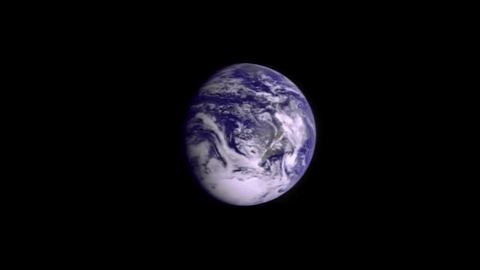
Earth, our home planet, is the fifth largest planet in our solar system and the only planet we know of where life exists. Even though Earth seems extremely large to us, it is actually a tiny spec in the vast expanse of the universe. Here are 7 space facts that will make you feel very small.

1. Our sun is one of at least 100 BILLION stars, just in the Milky Way. Scientists calculate that there are at least 100 billion galaxies in the observable universe, each one brimming with stars. There are more stars than grains of sand on all of Earth’s beaches combined.
In 1995, the first planet beyond our solar system was discovered. Now, thousands of planets orbiting sun-like stars have been discovered, also known as exoplanets.

2. The Milky Way is a huge city of stars, so big that even at the speed of light (which is fast!), it would take 100,000 years to travel across it.

3. Roughly 70% of the universe is made of dark energy. Dark matter makes up about 25%. The rest — everything on Earth, everything ever observed with all of our instruments, all normal matter adds up to less than 5% of the universe.

4. If the sun were as tall as a typical front door, Earth would be the size of a nickel.

5. The sun accounts for almost all of the mass in our solar system. Leaving .2% for all the planets and everything else.

6. Edwin Hubble discovered that the Universe is expanding and that at one point in time (14 billion years ago) the universe was all collected in just one point of space.

7. Four American spacecraft are headed out of our solar system to what scientists call interstellar space. Voyager 1 is the farthest out — more than 11 billion miles from our sun. It was the first manmade object to leave our solar system. Voyager 2, is speeding along at more than 39,000 mph, but will still take more than 296,000 years to pass Sirius, the brightest star in our night sky.
Feeling small yet? Here’s a tool that will show you just how tiny we are compared to everything else out there: http://imagine.gsfc.nasa.gov/features/cosmic/earth.html
Make sure to follow us on Tumblr for your regular dose of space: http://nasa.tumblr.com
5 Signs You Might Be Ready to Apply to be an Astronaut
Did you hear? Astronaut applications are open! Here are a few signs that might mean you’re ready to apply:
1. You Don’t Mind Having Roommates

When you’re an astronaut, you have to work and live with your crew mates for extended periods of time. It’s important to the mission and your safety that everyone can collaborate and work together.
2. You LOVE Space

If the Milky Way, planets and space travel doesn’t excite you then this might not be the perfect job for you. But if you love galaxies, space station research and deep space exploration, then maybe you should take a look at our application.
3. Adventure Doesn’t Scare You

Being an astronaut means that you get to take part in adventures that most people will never experience. Imagine: sitting on the launch pad in the Orion spacecraft, atop a rocket that’s getting ready to launch. You’ll travel farther into space than any other humans have been and help push the boundaries of technology in the proving ground of deep space lunar orbits, leading the way for future missions to Mars.
4. You Want to be on the Cutting Edge of Science

Not only do astronauts get to travel to space, but they also get to conduct really cool research in microgravity. Did you know that right now they’re growing Zinnia flowers on the International Space Station? This research could help with our future deep space exploration and could teach us a few things about growing plants on Earth. Learn more about all the awesome research on the space station HERE.
5. You’re Not Afraid of Heights

One of the coolest things about being an astronaut, is that you get to go to SPACE! At the very least, you’ll travel to the International Space Station, which is 250 miles above Earth. Or, you could be one of the first astronauts to travel to a distant asteroid or even Mars!
Interested in applying to become an astronaut? You’re in luck, applications open Dec. 14! Learn about some common myths about becoming an astronaut HERE.
Apply to be one of our astronauts HERE.
Make sure to follow us on Tumblr for your regular dose of space: http://nasa.tumblr.com

Nasa spots mysterious heart-shaped craters on the surface of Mars. Mars wishes you love ❤
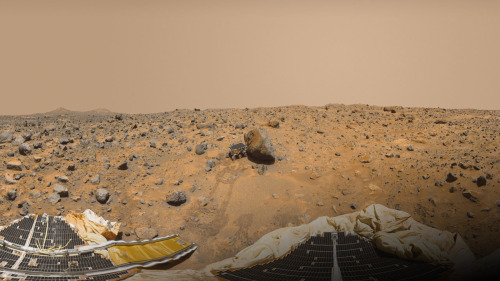
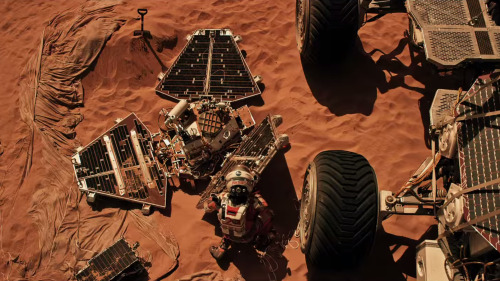
Mars Pathfinder & Sojourner Rover (360 View) Explained
Thanks to new technology, we can take a 360-degree tour of the 1997 Pathfinder mission landing site, including Sojourner, the first Mars rover. Check out this interactive YouTube panorama, and then…
…keep scrolling to find out more about each point of interest, how the Pathfinder mission compares to “The Martian” and NASA’s real Journey to Mars.

Yogi
“Yogi” is a meter-size rock about 5 meters northwest of the Mars Pathfinder lander and the second rock visited by the Sojourner Rover’s alpha proton X-ray spectrometer (APXS) instrument. This mosaic shows super resolution techniques applied to help to address questions about the texture of this rock and what it might tell us about how it came to be.

Twin Peaks
The Twin Peaks are modest-size hills to the southwest of the Mars Pathfinder landing site. They were discovered on the first panoramas taken by the IMP camera on the July 4, 1997, and subsequently identified in Viking Orbiter images taken over 20 years ago. They’re about 30-35 meters tall.

Barnacle Bill
“Barnacle Bill” is a small rock immediately west-northwest of the Mars Pathfinder lander and was the first rock visited by the Sojourner Rover’s alpha proton X-ray spectrometer (APXS) instrument. If you have some old-school red-cyan glasses, put them on and see this pic in eye-popping 3-D.

Rock Garden
The Rock Garden is a cluster of large, angular rocks tilted in a downstream direction from ancient floods on Mars. The rocky surface is comprised of materials washed down from the highlands and deposited in this ancient outflow channel.

MOAR INFO
Pathfinder Lander & Sojourner Rover
Mission Facts [PDF]
Science Results
Rock & Soil Types


This vista was stitched together from many images taken in 1997 by Pathfinder.

Pathfinder and Sojourner figure into Mark Watney’s quest for survival on the Red Planet in the book and movie, “The Martian.” See JPL’s role in making “The Martian” a reality: http://go.nasa.gov/1McRrXw and discover nine real NASA technologies depicted in “The Martian”: http://go.nasa.gov/1QiyUiC.

So what about the real-life “Journey to Mars”? NASA is developing the capabilities needed to send humans to Mars in the 2030s. Discover more at http://nasa.gov/journeytomars and don’t forget to visit me when you make it to the Red Planet. Until then, stay curious and I’ll see you online.


T-2 hours - JASON-3 and Falcon 9 stand tall on the west coast. For the second time in its history, a SpaceX Falcon 9 v1.1 rocket stands at Vandenberg Air Force Base’s SLC-4E ready for launch. The 224 foot tall rocket will carry the joint NASA/NOAA JASON-3 satellite to study Earth’s oceans. Of the 20 flights of the Falcon 9 to date, all but one has occurred from Cape Canaveral’s SLC-40. The inaugural flight of Falcon 9 v1.1, Cassiope in September 2013, was also the debut of the vehicle on the west coast. The JASON-3 mission will see the final v1.1 Falcon 9 performing the vehicle’s second west coast flight. Liftoff will occur in the middle of a 30-second launch window, at 1:42 pm EST (10:42 am PST). NASA TV coverage started at 11 am EST. Watch the launch live here. p/c: SpaceX/NASA

Grasping the stars 💫⭐
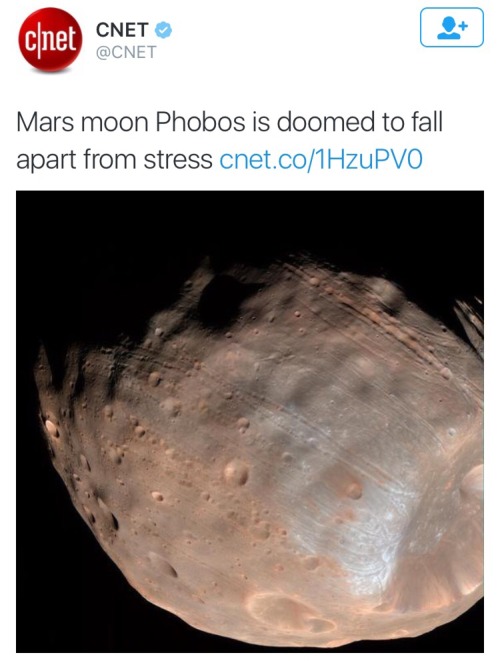
Wow me too
-
 daengeli liked this · 2 months ago
daengeli liked this · 2 months ago -
 alwaysreenie liked this · 6 months ago
alwaysreenie liked this · 6 months ago -
 letoseezthings reblogged this · 1 year ago
letoseezthings reblogged this · 1 year ago -
 rajjiyam liked this · 1 year ago
rajjiyam liked this · 1 year ago -
 of-time-to-time reblogged this · 2 years ago
of-time-to-time reblogged this · 2 years ago -
 liquidswordsss liked this · 2 years ago
liquidswordsss liked this · 2 years ago -
 n1z4 reblogged this · 2 years ago
n1z4 reblogged this · 2 years ago -
 xscape reblogged this · 2 years ago
xscape reblogged this · 2 years ago -
 xscape liked this · 2 years ago
xscape liked this · 2 years ago -
 perfectlycautious reblogged this · 2 years ago
perfectlycautious reblogged this · 2 years ago -
 thereluctantbeliever reblogged this · 2 years ago
thereluctantbeliever reblogged this · 2 years ago -
 dyusipprutgum reblogged this · 2 years ago
dyusipprutgum reblogged this · 2 years ago -
 perfectlycautious liked this · 2 years ago
perfectlycautious liked this · 2 years ago -
 orthodoksia liked this · 2 years ago
orthodoksia liked this · 2 years ago -
 aevarswall liked this · 2 years ago
aevarswall liked this · 2 years ago -
 holyloved reblogged this · 2 years ago
holyloved reblogged this · 2 years ago -
 holyloved liked this · 2 years ago
holyloved liked this · 2 years ago -
 heartt-way reblogged this · 2 years ago
heartt-way reblogged this · 2 years ago -
 tsukarikata reblogged this · 2 years ago
tsukarikata reblogged this · 2 years ago -
 tsukarikata liked this · 2 years ago
tsukarikata liked this · 2 years ago -
 palesnowflakee reblogged this · 2 years ago
palesnowflakee reblogged this · 2 years ago -
 memories-of-a-lost-soul reblogged this · 2 years ago
memories-of-a-lost-soul reblogged this · 2 years ago -
 ohfallingstar reblogged this · 2 years ago
ohfallingstar reblogged this · 2 years ago -
 the-lost-pandora liked this · 2 years ago
the-lost-pandora liked this · 2 years ago -
 elekthris reblogged this · 2 years ago
elekthris reblogged this · 2 years ago -
 rosewaterandgilt reblogged this · 2 years ago
rosewaterandgilt reblogged this · 2 years ago -
 girl-against-god liked this · 2 years ago
girl-against-god liked this · 2 years ago -
 420bunnies liked this · 2 years ago
420bunnies liked this · 2 years ago -
 girlfromthemoors reblogged this · 2 years ago
girlfromthemoors reblogged this · 2 years ago -
 girlfromthemoors liked this · 2 years ago
girlfromthemoors liked this · 2 years ago -
 petraplatypuspan reblogged this · 2 years ago
petraplatypuspan reblogged this · 2 years ago -
 petraplatypuspan liked this · 2 years ago
petraplatypuspan liked this · 2 years ago
"Astronomy compels the soul to look upwards and leads us from this world to another." - Plato
147 posts